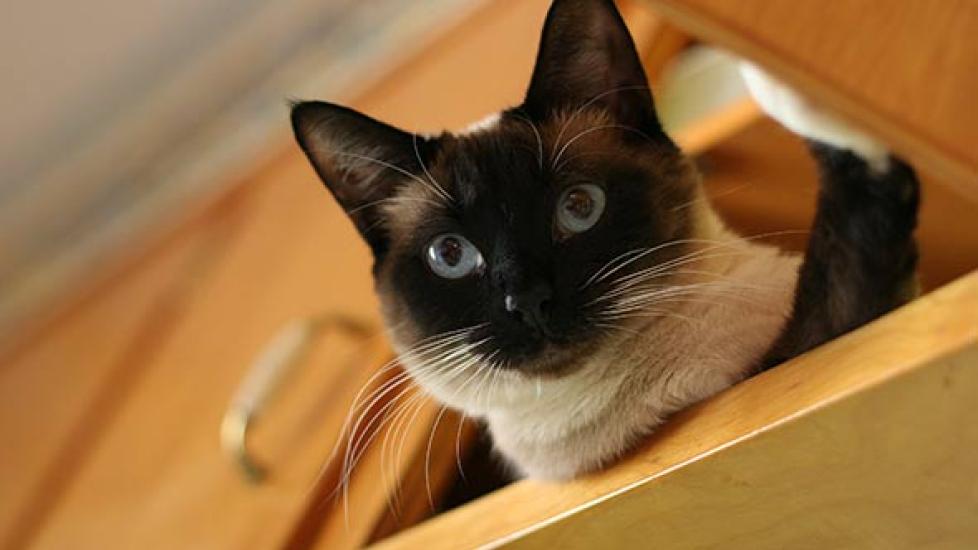The 10 Most Common Poisons That Affect Cats
What are the most common cat poisons—do you know? Back in 2006, an article published in Veterinary Medicine reported "The 10 most common toxicoses in cats" based on the 10 most common feline poisons reported to the American Society for the Prevention of Cruelty to Animals (ASPCA) Animal Poison Control Center.
The top poisons reported in this article included:
Canine permethrin insecticides
These are flea and tick products made specifically for dogs that were used mistakenly on cats.
Other topical insecticides
Most of these products are relatively safe when used according to label directions but can be dangerous when directions are not followed carefully.
Venlafaxine (Effexor)
This is a prescription medication; an antidepressant used in people. The poison control center reports that cats readily consume this medication when given the opportunity.
Glow sticks and glow jewelry
These products are not terribly toxic but have an extremely unpleasant taste that can cause drooling and agitation for the unsuspecting cat that bites into one. Watching the cat’s reaction can be a frightening experience for a cat owner and prompts many inquiries about these products and their potential for adverse effects.
Lilies
These beautiful plants can be lethal for your cat. All parts of the plant are considered toxic and even getting pollen on the fur from coming too close to one of these plants and then grooming can be enough to cause illness.
Liquid potpourri
These products may contain both detergents that are corrosive to the lining of the throat and esophagus as well as essential oils that can be very toxic for cats.
Non-steroidal anti-inflammatory drugs (NSAIDs)
This includes canine formulas that are not labeled for use in cats because of sensitivity and dosing issues as well as over-the-counter medications such as ibuprofen. Often these are administered by well-meaning pet owners who mistakenly believe they are helping their cat. (It should be mentioned that there are some NSAIDS that are labeled for cats and are safe when used appropriately, though NSAID usage in cats remains a controversial issue in the veterinary profession.)
Acetominophen (Tylenol)
Like NSAIDS, this drug is most often administered to a cat by a well-meaning but misinformed cat owner.
Anticoagulant rodenticides (rat poison)
These products are toxic not only to rats, mice, and other rodents, but also to pets such as your cat if ingested. They work by preventing blood from clotting normally, causing bleeding deficits.
Amphetamines
These may be human prescription medications or illicit drugs. They can be dangerous if ingested by your cat.
Pet Poison Helpline Top Feline Poisonings
The Pet Poison Helpline reports their top feline poisonings as the following (quoted directly from their website):
-
Lilies
-
Canine pyrethroid insecticides (topical flea and tick medicine designed for dogs but erroneously placed on cats)
-
Household cleaners
-
Rodenticides
-
Paints and varnishes
-
Veterinary non-steroidal anti-inflammatory medications (Rimadyl®, Deramaxx®)
-
Glow sticks/glow jewelry
-
Amphetamines (such as ADD/ADHD drugs)
-
Acetaminophen (Tylenol® in brand name or generic form)
-
Ibuprofen (Advil or Motrin® in brand name or generic form)
As you can see, the two lists are very similar, with many of the same poisons reported by both organizations.
If you believe your cat has ingested or been exposed to a potential toxin, contact your veterinarian for advice immediately. Many poisons are fast-acting and even a small delay can make a difference between life and death for your cat.
See also:
See our list of Poisonous Plants for Cats
